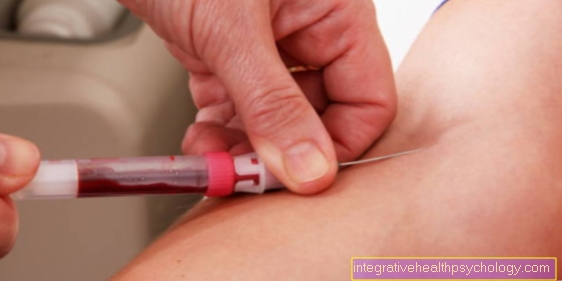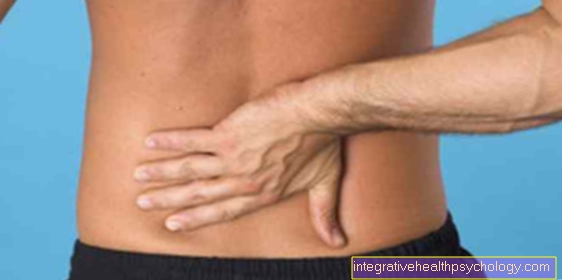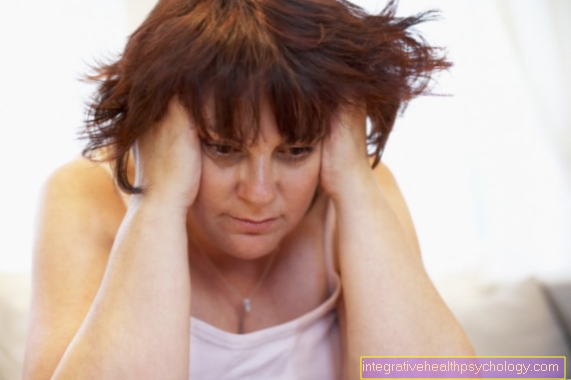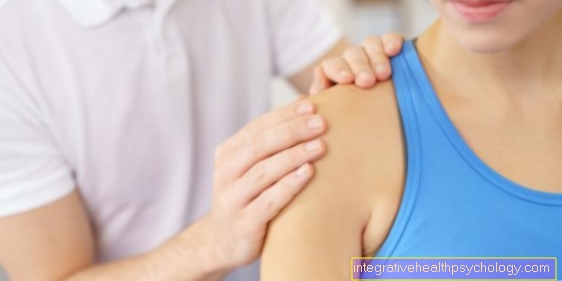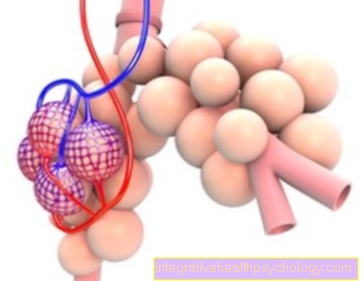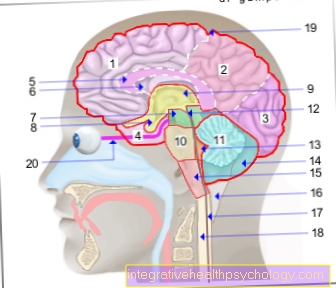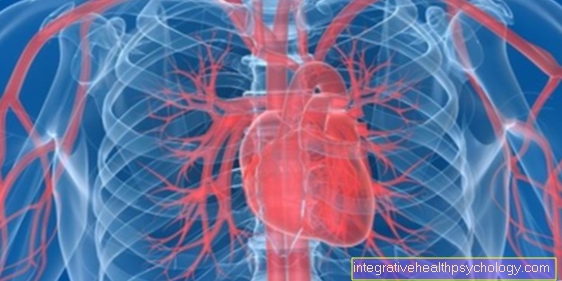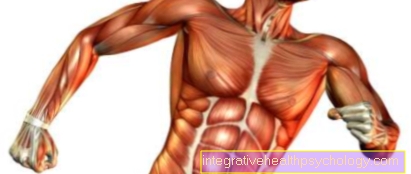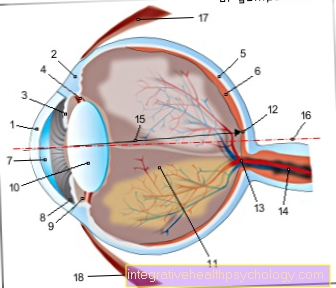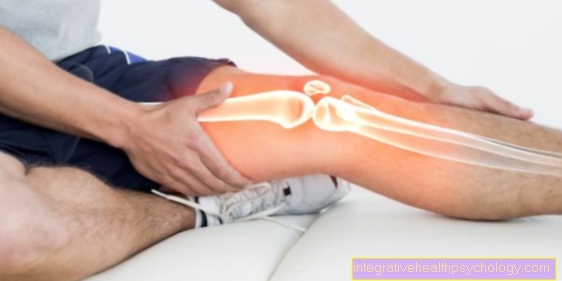Osteoporosis in underweight
What is osteoporosis if you are underweight?
Underweight osteoporosis means the development of the disease osteoporosis, i.e. bone loss, due to being underweight.
This mainly affects young women who suffer from eating disorders, but also older people who are increasingly losing weight due to insufficient food intake and other diseases. The hormone estrogen also plays a role in osteoporosis caused by underweight.
In order to counteract bone loss and underweight, a balanced diet and regular exercise are very important.

Causes - How are osteoporosis and underweight related?
There are different connections between osteoporosis and underweight. On the one hand, being underweight is an important risk factor for the development of osteoporosis, and on the other hand, the loss of bones also promotes a reduction in body weight.
The most common reason for being underweight that causes osteoporosis is malnutrition. Especially in young women, the strong desire for a low weight leads to an inadequate and unbalanced diet.
Avoiding dairy products like cheese or cream leads to a lack of calcium in the body. As a result, the body begins to get the calcium from the bones, which is one of the main forms of storage for the mineral. As a result, the bones become more unstable and more prone to fractures.
Added to this is the fact that the bones naturally lose density or substance from the age of 30.
In addition, a long-term underweight leads to a deficiency of the hormone estrogen. This also leads to a reduction in the density of the bones, which can lead to osteoporosis.
But osteoporosis also plays a role in people who are underweight in old age. Due to the naturally reduced bone density and the frequent presence of other diseases in old age, many people become more frail and increasingly immobile. This leads to a reduction in muscle mass and thereby also a reduction in body weight.
Diagnosis of osteoporosis in underweight
The diagnosis of osteoporosis when you are underweight depends on various factors.
Osteoporosis itself can be diagnosed by measuring bone density.
As a rule, one speaks of underweight from a body mass index of less than 18.5, but other parameters such as gender and age also play a role.
In connection with osteoporosis, being underweight is usually chronic, i.e. it lasts for a longer period of time. Since many factors play a role in the development of osteoporosis, underweight as the only triggering cause can often not be clearly identified.
Learn more about Diagnosing osteoporosis.
Appointment with ?

I would be happy to advise you!
Who am I?
My name is I am a specialist in orthopedics and the founder of .
Various television programs and print media report regularly about my work. On HR television you can see me every 6 weeks live on "Hallo Hessen".
But now enough is indicated ;-)
In order to be able to treat successfully in orthopedics, a thorough examination, diagnosis and a medical history are required.
In our very economic world in particular, there is too little time to thoroughly grasp the complex diseases of orthopedics and thus initiate targeted treatment.
I don't want to join the ranks of "quick knife pullers".
The aim of any treatment is treatment without surgery.
Which therapy achieves the best results in the long term can only be determined after looking at all of the information (Examination, X-ray, ultrasound, MRI, etc.) be assessed.
You will find me:
- - orthopedic surgeons
14
You can make an appointment here.
Unfortunately, it is currently only possible to make an appointment with private health insurers. I hope for your understanding!
For more information about myself, see - Orthopedists.
Concomitant symptoms
With osteoporosis and underweight various other accompanying symptoms can occur.
Osteoporosis itself is associated with an increased risk of bone fractures, as well as a decrease in body size and often back pain.
Read which ones here Pain associated with osteoporosis occur.
The calcium deficiency in malnutrition often leads to:
- Muscle spasms
- Brittle hair and nails
- Dry skin
- Digestive disorders
- A pronounced exhaustion
Learn more about the Consequences of anorexia.
In older people, osteoporosis and underweight are often accompanied by muscle wasting. The reason for this is the reduced movement due to increasing frailty and instability when walking.
Therapy of osteoporosis in case of underweight
The treatment of osteoporosis and underweight depends on the severity of the disease.
The basis of therapy should always include a balanced diet, the intake of vitamins and sufficient exercise.
It is important that certain minerals are not avoided in the diet.
Avoiding certain foods, such as soft drinks or ready-made meals, which lead to more calcium being released from the bones and less calcium being absorbed, is advisable.
The amount of food also has a decisive influence on the development of body weight.
Vitamin D also plays an important role in the bones. As little as 15 minutes of sunlight a day can prevent a vitamin D deficiency, as sunlight is needed to produce vitamin D in the body.
Adequate exercise is also very important, as building and strengthening the muscles supports and stabilizes the bones in the body.
Depending on the reason for the development of the underweight, nutritional therapy should also be considered if necessary.
In the case of a pronounced form of chronic underweight, various types of artificial nutrition are available.
Read more about Therapy for an eating disorder.
Depending on the severity of the osteoporosis, different medications can be used. These include, for example, the so-called bisphosphonates, which counteract bone loss.
More information is available here:
- Therapy for osteoporosis
- Active against osteoporosis
- Prevent osteoporosis
Prognosis of osteoporosis with underweight
Osteoporosis and underweight can have different prognoses depending on the severity of the disease. As a rule, both diseases can be effectively counteracted if recognized in time. Sufficient exercise and a balanced diet can strengthen the body and stabilize the bones.
However, complications such as broken bones can also occur if diagnosed late.



